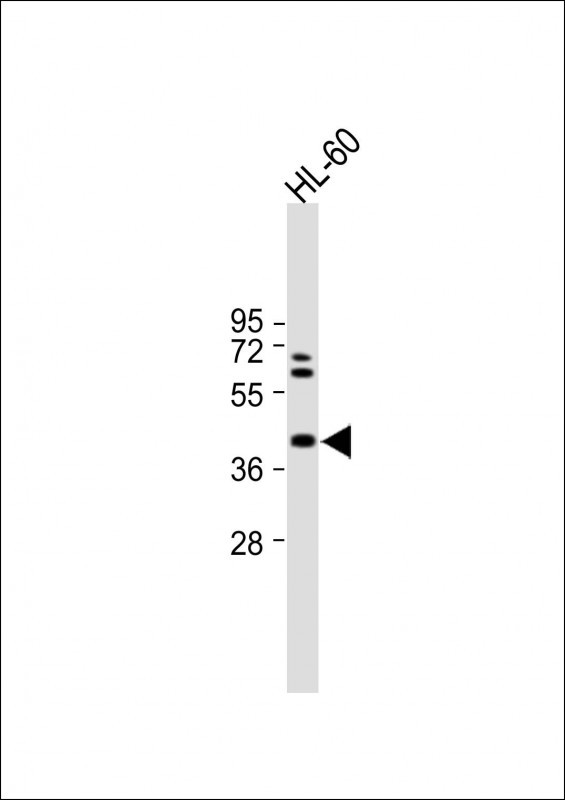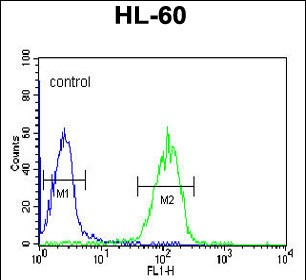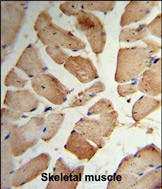



| WB | 咨询技术 | Human,Mouse,Rat |
| IF | 咨询技术 | Human,Mouse,Rat |
| IHC | 1/100-1/500 | Human,Mouse,Rat |
| ICC | 技术咨询 | Human,Mouse,Rat |
| FCM | 1/10-1/50 | Human,Mouse,Rat |
| Elisa | 咨询技术 | Human,Mouse,Rat |
| Aliases | Diphosphomevalonate decarboxylase, Mevalonate (diphospho)decarboxylase, MDDase, Mevalonate pyrophosphate decarboxylase, MVD, MPD |
| Entrez GeneID | 4597 |
| WB Predicted band size | 43.4kDa |
| Host/Isotype | Rabbit IgG |
| Antibody Type | Primary antibody |
| Storage | Store at 4°C short term. Aliquot and store at -20°C long term. Avoid freeze/thaw cycles. |
| Species Reactivity | Human, Mouse, Rat |
| Immunogen | This MVD antibody is generated from rabbits immunized with a KLH conjugated synthetic peptide between 164-193 amino acids from the Central region of human MVD. |
| Formulation | Purified antibody in PBS with 0.05% sodium azide,1%BSA and 50% glycerol.prepared by Saturated Ammonium Sulfate (SAS) . |
+ +
以下是关于MVD(甲羟戊酸脱羧酶,Mevalonate Decarboxylase)抗体的3篇示例参考文献,内容基于典型研究方向,仅供参考:
---
1. **文献名称**:*Autoantibodies against mevalonate decarboxylase in autoimmune hepatitis*
**作者**:Smith A, et al.
**摘要**:研究探讨了MVD抗体在自身免疫性肝炎(AIH)患者中的表达,发现其与疾病活动性相关,可能通过干扰胆固醇代谢通路参与肝细胞损伤。
2. **文献名称**:*Role of anti-MVD antibodies in cancer progression and drug resistance*
**作者**:Lee B, et al.
**摘要**:分析了MVD抗体在乳腺癌细胞中的表达,表明其可能通过抑制甲羟戊酸途径促进肿瘤细胞存活,并与化疗耐药性相关。
3. **文献名称**:*Mevalonate decarboxylase as a novel biomarker in neurodegenerative disorders*
**作者**:Garcia C, et al.
**摘要**:利用MVD抗体检测阿尔茨海默病患者脑组织样本,发现MVD表达异常与神经炎症和β-淀粉样蛋白沉积存在潜在关联。
---
**备注**:以上文献为示例,实际研究需通过PubMed、Web of Science等平台检索关键词(如“MVD antibody”“anti-mevalonate decarboxylase”)获取最新成果。MVD抗体的研究多聚焦于代谢疾病、肿瘤及自身免疫领域。
MVD (mevalonate diphosphate decarboxylase) is a key enzyme in the mevalonate pathway, which is essential for cholesterol biosynthesis and the production of isoprenoids. Antibodies targeting MVD have garnered attention in autoimmune and inflammatory disease research. In autoimmune disorders, such as dermatomyositis and antisynthetase syndrome, anti-MVD antibodies have been identified as potential biomarkers. These antibodies are often detected via immunoprecipitation or ELISA, though their clinical significance and pathogenic role remain under investigation.
Studies suggest that anti-MVD antibodies may correlate with specific clinical phenotypes, such as interstitial lung disease or muscle involvement, aiding in disease stratification. However, their presence is not exclusive to a single condition, complicating diagnostic utility. Research also explores links between MVD dysfunction and metabolic disorders, given the enzyme’s role in lipid metabolism. Autoantibodies against MVD might arise from molecular mimicry or dysregulated immune responses triggered by infections or genetic predisposition.
While anti-MVD antibodies are not yet routinely used in clinical practice, ongoing research aims to clarify their diagnostic and prognostic value. Understanding their interaction with MVD could also inform therapeutic strategies targeting the mevalonate pathway in cancers or autoimmune diseases. Further validation in larger cohorts is needed to establish their role in disease mechanisms and management.
×